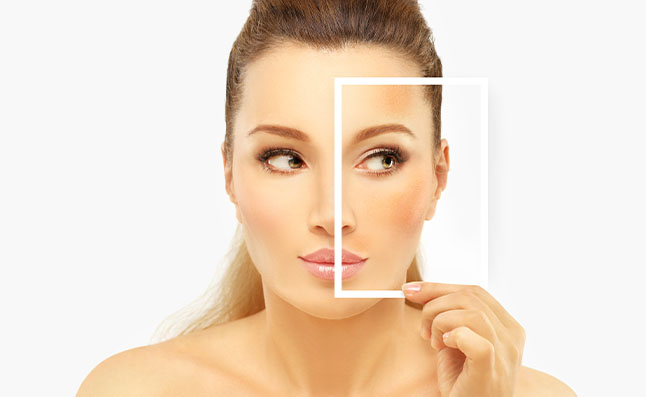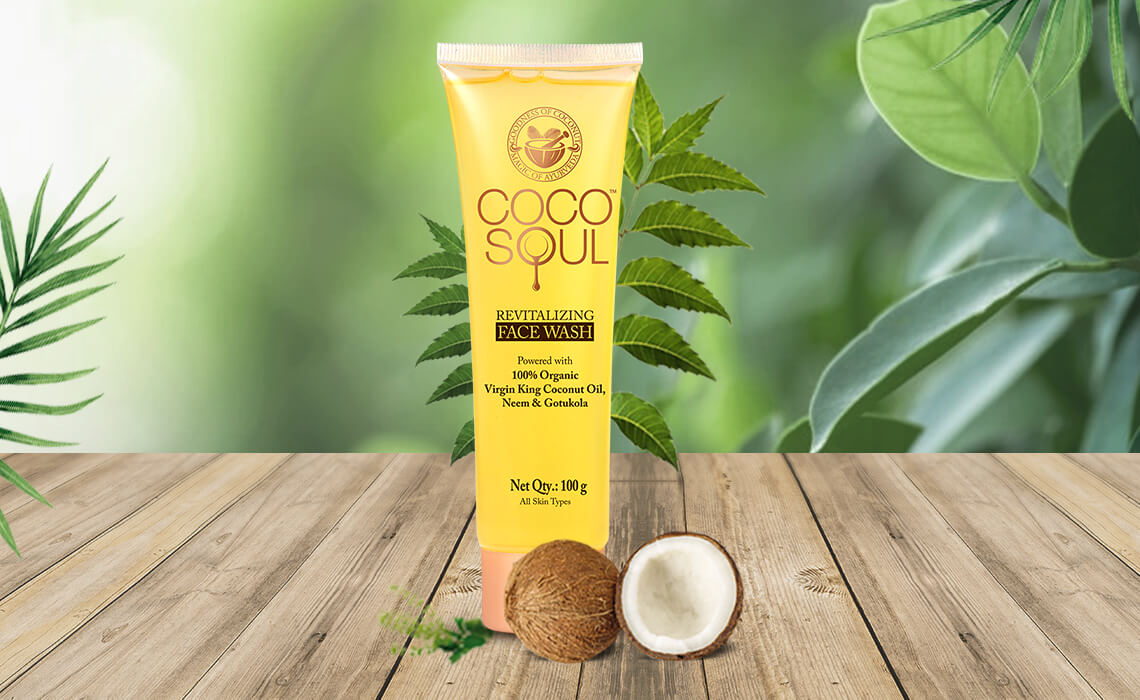- What is hyperpigmentation?
- What causes dark spots on your face?
- How Dry Weather Affects Hyperpigmentation and Dark Spots
- How to Cure Hyperpigmentation in Winter:
- Takeaways
-
Frequently Asked Questions on What Causes Dark Spots on Face

What is hyperpigmentation?
Pigments are naturally present in everyone's skin, which are produced in the cell called melanocytes. These cells produce varied pigments, one of which is the infamous melanin. Being our natural SPF, melanin's primary function is to protect our skin from UV damage. But when our melanocytes are unhealthy, it tends to overproduce melanin that causes visible dark patches on the face, commonly known as hyperpigmentation. Let us know more about this and what causes hyperpigmentation.
What causes dark spots on face?
Freckles, dark spots, brown patches are all forms of hyperpigmentation that one notices commonly. While many factors trigger our melanin, exposure to the sun is one of the most common reasons leading to hyperpigmentation or dark spots on our face. Besides prolonged exposure to the sun, pimples and rashes too can cause skin inflammation and disrupt the pigmentation of your skin.
What causes hyperpigmentation?
1.Age spots: An prevalent sign of skin ageing, age spots are a form of hyperpigmentation caused by overexposure to harsh UV rays. Since your face, neck, and arms are more open to sun exposure, you may notice hyperpigmentation in these areas. Once you identify your age spots it gets easier to know how to treat dark spots.
2.Post-inflammatory hyperpigmentation: If your skin has faced a trauma such as eczema flares, acne, rashes, chickenpox, or cuts, it can disrupt your melanin distribution and cause unevenness, also known as hyperpigmentation or prominent winter pigmentation.
3.Melasma: Most commonly encountered by women, Melasma is believed to occur due to hormonal imbalances, commonly due to pregnancy. This causes patches of discoloration on the nose, forehead, chin, and near lip area.
4.Freckles: While often not known as a form of hyperpigmentation, freckles are genetically present hyperpigmentation that gets darker and evident due to UV exposure.
How Can Dry Weather Affect Hyperpigmentation and Dark Spots
Contrary to popular belief, hyperpigmentation in winters or winter pigmentation is common and very much a skin concern to be worried about in winters as well. With temperatures dropping and the weather becoming drier, our skin loses moisture and its natural oils. Decreased humidity can cause dry patches and leave a persistent dark spot from skin conditions such as eczema, acne, psoriasis, wound, etc. Fortunately, it is easier to tackle hyperpigmentation in winter with little tips and remedies you can easily hook onto.
How to Cure Hyperpigmentation in Winter:
Every skin type differs from person to person, and so do the skin concerns. Winter hyperpigmentation can occur for varied reasons, and once you find out what triggers your skin, it becomes easier to cure dark spots of hyperpigmentation easily. However, if you are taking preventive measures and still unable to get rid of hyperpigmentation, you may want to get professional help onboard to guide you through your skin concerns and advise a suitable plan of action. If you are looking for help with mild hyperpigmentation, here is what you can do:

- Avoid the sun:
With hyperpigmentation, prevention is always better than cure, especially preventing your skin from the sun. Constant exposure to the sun can lead to more melanin production, making it difficult for any kind of skin treatment to actually work on your skin.
Wear your sunscreen every day whether it's sunny or raining outside. Use SPF 30 or more and reapply a generous layer every two hours. If you anticipate staying out for longer hours, wear caps or hats.
If you've already made the mistake of staying out in the sun too long and gotten burnt, here are some effective winter sun burn treatments to help you out.
- Leave your skin alone:
This goes without saying, if your skin is healing, give it the time it needs. Do not pick on any scabs, or pimples while they are recovering and cover your cuts with sanitised cloth or band-aid to avoid scratching. Irritating your inflamed skin can lead to skin darkening and stubborn dark patches.
- Choose the right ingredients:
While hyperpigmentation may be difficult to eliminate permanently, it may get easier to prevent or even minimise the visibility of these pigments if you use the right ingredients in your skincare routine. You will find a range of skincare brands that aim to prevent new spots from coming and minimise dark spots. Most of these skincare ranges use natural ingredients readily available in your kitchen. Infuse these ingredients in your daily routine to get effective results. A very common ingredient to look for is vitamin-C, which is anti-inflammatory and lightens the dark spots.
Try Coco Soul:
Coco Soul's face wash is crafted with ancient Ayurvedic wisdom, the goodness of Virgin King Coconut Oil, and the magic of Gotu Kola and Neem! Coco Soul's revitalizing face wash is your skin's new best friend as the ingredients used to create this natural face wash are derived from ayurvedic expertise and nature's most potent herbs. It cleanses dirt and other impurities from your face without making it dry. All in all, this natural face wash revitalizes your facial skin by giving it a fresh and radiant look.

Takeaways:
Hyperpigmentation is a common skin woe that can be experienced by anyone and appear prominent at any age. Your best bet to prevent it as much as possible is to apply sunscreen daily and follow simple methods to know how to remove hyperpigmentation on face. If you notice it's getting severe or hormonal and sunscreen isn't helping, call up your dermatologist and seek professional help. If you decide to go ahead with professional help, note that any treatment and topical skin care needs consistency. So even if you resort to an in-clinic treatment, make sure you follow up on the routine, have regular appointments with a dermatologist, and take the best care of your skin.
If you're looking for other ways to treat winter skin problems, head over to our blog on the common skin problems faced in winter.
Frequently Asked Questions on What Causes Dark Spots on Face
1.Are dark spots the same as hyperpigmentation?
Hyperpigmentation is an umbrella term that covers skin woes of dark skin patches. While dark spots are results of hyperpigmentation and scarring, it is important to take preventive measures at all times.
2.Does hyperpigmentation fade in winter?
Most of our hyperpigmentation patches will fade or lighten during the winter due to lesser sun stimulation and appear darker in the sun. However, it is important you apply sunscreen throughout the year.
3.Why are my dark spots getting worse in winter?
Hyperpigmentation may seem like a summer skin issue but it is persistent in winters as well. Our skin is drier and lacks moisture in winters that causes dry patches of acne or eczema. These go on to leave stubborn dark spots on your skin, making hyperpigmentation worsen in winters too.
